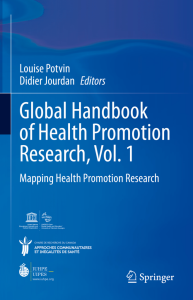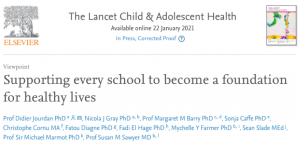he Education and Solidarity Network and the Foundation for Public Health, in partnership with Education International and the UNESCO Chair Global Health & Education, have launched the 2nd edition of the International Barometer of the Health and Wellbeing of Education Personnel (I-BEST) in 2023.
During the webinar of the I-BEST 2023, Didier Jourdan, holder of the UNESCO Chair Global Health & Education, made the observation about the lack of attractiveness of working in the education sector, before giving an overview of the challenges facing education:
Today’s challenge for current and future teachers is the quality of life at work, well-being and social protection.
I would also like to point out that when it comes to the health of adolescents in schools, and more generally the promotion of health in schools, it is important to remember that one of the key factors in the favourable development of our education systems towards taking account of the mental health and well-being of pupils is the health of teachers.
Today, bringing to the fore issues relating to the health and well-being of teachers is an absolutely major challenge, and this is the reason for the commitment of the UNESCO Chair and the WHO Collaborating Centre for Global Health & Education to trade union organizations, the ESN and the Public Health Foundation.
Call for action: contribute to our ideas box on initiatives to be developed to enhance school staff well-being
A central element of the webinar was the insight gained from the experience and feelings of staff. The weakening of their mental health stood out. We are therefore launching the I-BEST Ideas Box to collect your concrete initiatives to support the well-being of education staff, such as stress management tools, mental health resources, decent working conditions and other measures needed to improve the lives of those who shape the future of our societies.
By uniting our voices and taking action, we can make a real difference to the lives of education staff and, by extension, to the education of children.
If you have any questions about I-BEST, please contact: secretariat@educationsolidarite.org











 About Didier Jourdan
About Didier Jourdan
